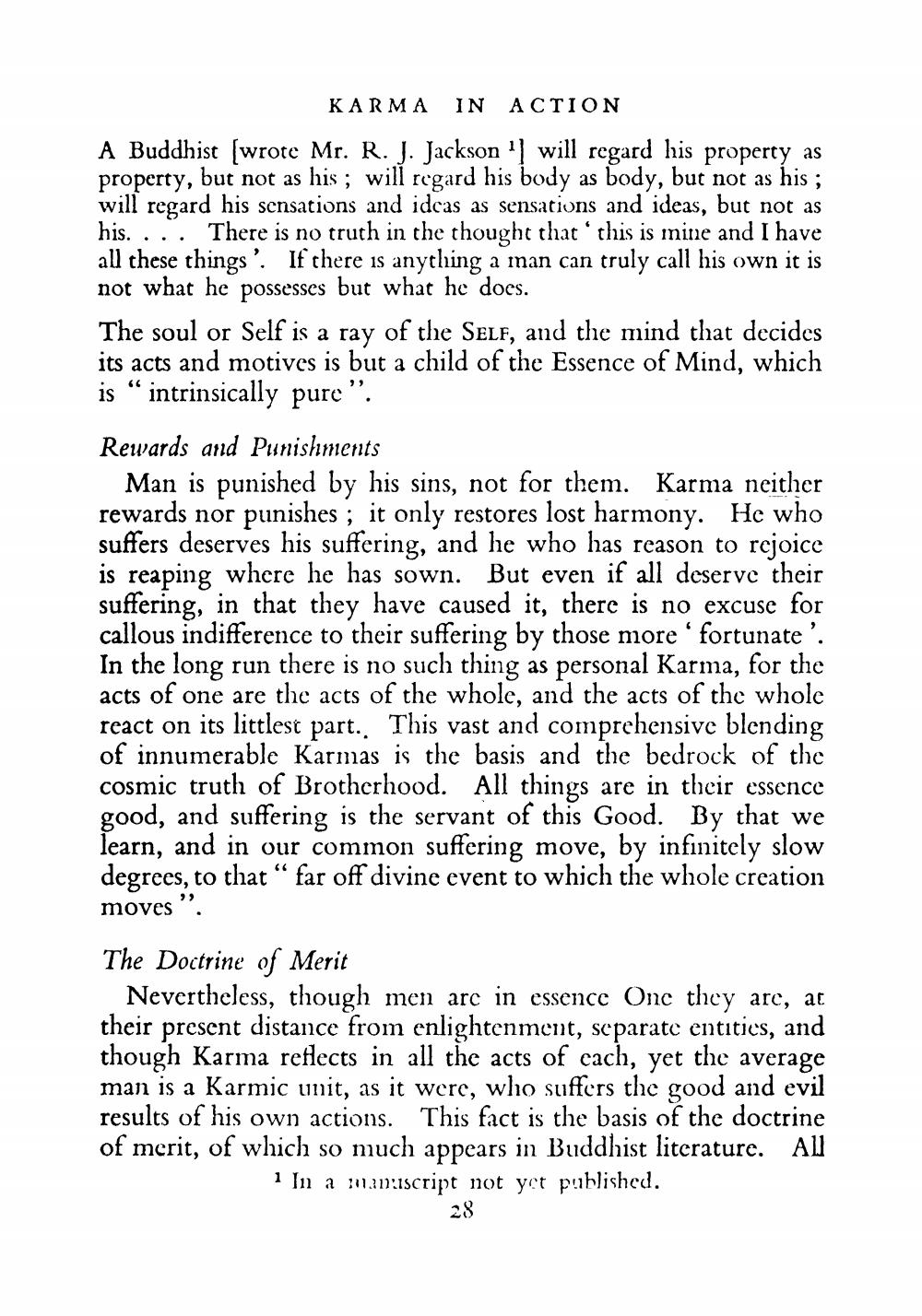________________
KARMA IN ACTION
A Buddhist [wrote Mr. R. J. Jackson I will regard his property as property, but not as his; will regard his body as body, but not as his; will regard his sensations and ideas as sensations and ideas, but not as his.... There is no truth in the thought that this is mine and I have all these things'. If there is anything a man can truly call his own it is not what he possesses but what he does.
The soul or Self is a ray of the SELF, and the mind that decides its acts and motives is but a child of the Essence of Mind, which is "intrinsically pure".
Rewards and Punishments
Man is punished by his sins, not for them. Karma neither rewards nor punishes; it only restores lost harmony. He who suffers deserves his suffering, and he who has reason to rejoice is reaping where he has sown. But even if all deserve their suffering, in that they have caused it, there is no excuse for callous indifference to their suffering by those more 'fortunate'. In the long run there is no such thing as personal Karma, for the acts of one are the acts of the whole, and the acts of the whole react on its littlest part.. This vast and comprehensive blending of innumerable Karmas is the basis and the bedrock of the cosmic truth of Brotherhood. All things are in their essence good, and suffering is the servant of this Good. By that we learn, and in our common suffering move, by infinitely slow degrees, to that" far off divine event to which the whole creation moves".
The Doctrine of Merit
Nevertheless, though men are in essence One they are, at their present distance from enlightenment, separate entities, and though Karma reflects in all the acts of each, yet the average man is a Karmic unit, as it were, who suffers the good and evil results of his own actions. This fact is the basis of the doctrine of merit, of which so much appears in Buddhist literature. All 1 In a manuscript not yet published.
28




